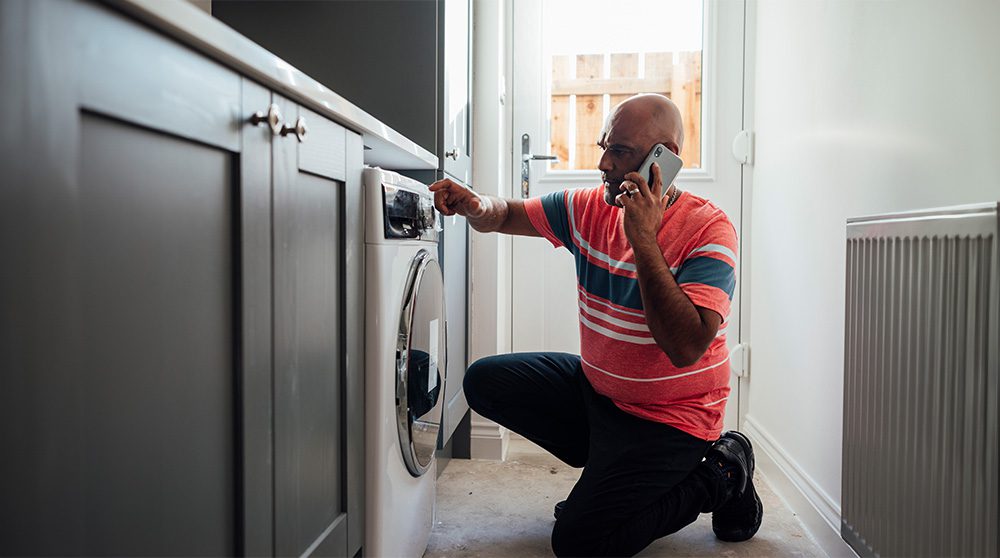Appliance safety 101: When to check what.

Home appliances are essential in our day-to-day lives. But they also require a level of responsibility. Appliance safety and maintenance can help prevent accidents, save energy, and extend the lifespan of these critical household items. Read on for our appliance safety tips.
When to check your key appliances
Refrigerators and freezers: Monthly checks. Take a couple of minutes to inspect door seals on refrigerators and freezers to confirm they are secure and devoid of cracks. Loose seals can lead to energy waste and food spoilage. Additionally, clean the condenser coils to enhance their efficiency and prevent overheating issues.
Washing machines and dryers: Weekly and annual checks. Make a habit of cleaning the lint trap after every load. Perform regular drum cleanings to prevent mold and mildew buildup. Also, inspect the machine hoses for leaks or bulges and replace them every few years as part of preventive maintenance.
Ovens and stoves: Weekly cleaning and quarterly checks. Clean the inside of your oven regularly to prevent grease buildup and potential fire hazards. Wipe your stovetop weekly to avoid similar grease or food accumulation. Test oven and stove burners periodically to ensure they ignite properly and distribute heat evenly.
Seasonal equipment: Before and after peak season. Inspect outdoor appliances, like grills, lawnmowers, and pool pumps before and after summer. Check furnaces for issues before winter, including rust and carbon monoxide leaks. When seasonal items aren’t in use, store them safely and securely.
Appliance safety and maintenance tips
Never overload outlets. Plug appliances into three-prong or ground fault circuit interrupter (GFCI) outlets. These outlets are designed for safety and can help reduce the risk of electric shock. Never plug appliances into extension cords and avoid overloading a single outlet with multiple appliances.
Inspect appliances for wear and tear. Check for signs of wear, such as frayed cords, loose connections, or damaged components. Promptly replace or repair any damaged parts to ensure appliances continue to operate safely.
Check filters and drains. Regularly clean or replace filters and drains in appliances, such as air conditioners, refrigerators, and dishwashers. This helps them operate at an optimal level and reduces the risk of clogs. Schedule professional maintenance for appliances, as needed.
Keep hazards away. Keep flammable materials, like curtains, towels, and paper away from heat-generating appliances to reduce the risk of fire. In addition, keep all appliance cords and electrical lines away from water.
Install smoke and carbon monoxide detectors. Appliance accidents can happen. To keep your family safe, install smoke detectors and carbon monoxide detectors near sleeping areas and on every level of your home. Test them regularly and replace batteries, as needed.
Unplug appliances when they’re not in use. Disconnect appliances from power sources when they’re not in use, especially during extended absences or vacations. This includes small appliances, like toasters, coffee makers, computers, televisions, etc.
With these appliance safety tips and guidelines, you can enjoy more peace of mind. When you’re looking for added protection, our local, independent agents are here for you. Find one near you and start a conversation today.
This content was developed for general informational purposes only. While we strive to keep the information relevant and up to date, we make no guarantees or warranties regarding the completeness, accuracy, or reliability of the information, products, services, or graphics contained within the blog. The blog content is not intended to serve as professional or expert advice for your insurance needs. Contact your local, independent insurance agent for coverage advice and policy services.



